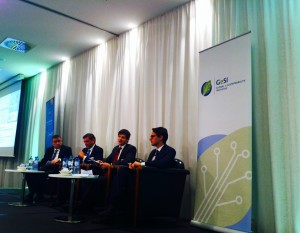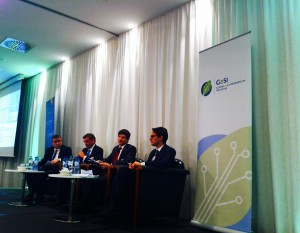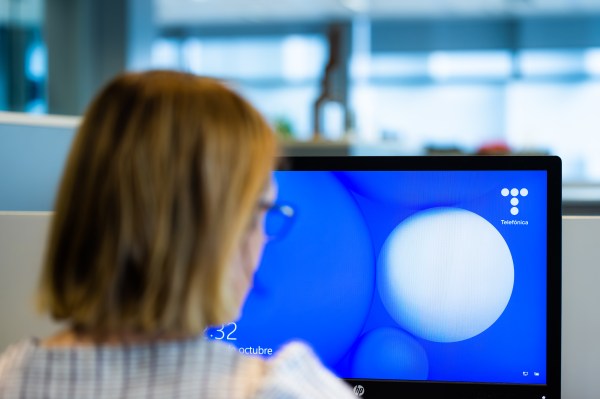 Editorial Staff
Editorial Staff
After its launch in Bonn on 10 June and its presentation in the US during Climate Week NY, SMARTer2030 was officially presented in Brussels on October 28th in the course of an event jointly organized by GeSI and ETNO, the European Telecommunication Operators’ Association, which is also a GeSI Board member.
The conference was opened by the Chairmen of the two associations, Luis Neves and Steven Tas, who illustrated how ICT products and services can help reduce businesses and users environmental impact, while at the same time creating interesting growth opportunities. Sustainability is not only about reducing carbon footprint but encompasses a wider set of benefits related to improving people’s quality of life and creating growth.
ICT is a disruptive technology that can transform the way all other sectors work: a number of successful examples of such ICT applications were mentioned during the first panel discussion, where speakers from both the ICT and non-ICT industry illustrated the positive impact of ICT solutions in the transport, agriculture, energy, and work areas among others.
The policy angle was not missing from the discussion: André Weidenhaupt from the Ministry of Sustainable Development and Infrastructure of Luxembourg, which holds the EU Council Presidency until the end of the year, provided some insights on the state of the EU-level negotiations ahead of COP21, and acknowledged that ICT needs to be recognized as one of the key instruments to deliver the climate goals expected to be agreed in Paris next December.
Given the several successful examples of ICT applications and the general agreement from stakeholders on the technology benefits, why is ICT uptake not as wide as one could expect?
The second panel debated the question and discussed how the current barriers could be overcome: this includes a fair regulatory environment, not only in the ICT sector but also in those other areas touched by the technology, such as health and education; an increased and improved communication effort from the ICT sector in clearly explaining the benefits of the technology to potential adopters and policymakers; and more cross-sector dialogue to ensure that the new products and services are developed taking into account the specificities and needs of other industries.
Eduardo Puig de la Bellacasa, Director of Stakeholder Engagement and Corporate Reporting at Telefónica, pointed out that a recent study by CEPAL showed that a 10% increase in the Digitalization index generates a 0.749% increase in the per capita GDP. In addition, he stood up the importance of having favorable regulation in order to develop new digital products and services underlining the importance of innovation, where Telefónica is the third telecom company in the world in R&D.
The meeting was closed by the remarks of Danilo Riva, Chair of the ETNO Corporate Responsibility WG and GeSI Board member, who underlined the need to invest in smart solutions to tackle climate change, and to further raise awareness of the benefits of ICT for people.
————————–
Post originally published on GeSi Blog.













